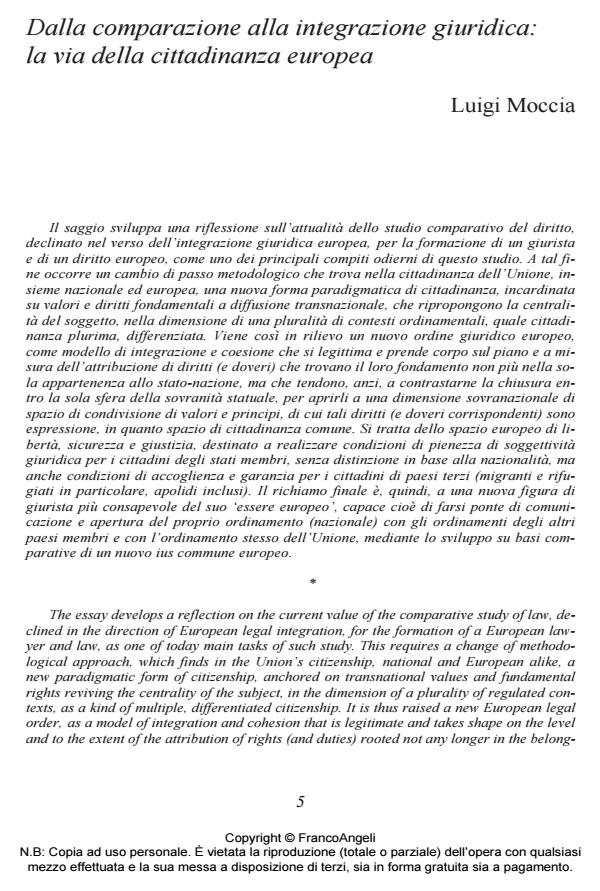Dalla comparazione alla integrazione giuridica: la via della cittadinanza europea
Journal title CITTADINANZA EUROPEA (LA)
Author/s Luigi Moccia
Publishing Year 2015 Issue 2015/2
Language Italian Pages 29 P. 5-33 File size 102 KB
DOI 10.3280/CEU2015-002001
DOI is like a bar code for intellectual property: to have more infomation
click here
Below, you can see the article first page
If you want to buy this article in PDF format, you can do it, following the instructions to buy download credits

FrancoAngeli is member of Publishers International Linking Association, Inc (PILA), a not-for-profit association which run the CrossRef service enabling links to and from online scholarly content.
The essay develops a reflection on the current value of the comparative study of law, declined in the direction of European legal integration, for the formation of a European lawyer and law, as one of today main tasks of such study. This requires a change of methodological approach, which finds in the Union’s citizenship, national and European alike, a new paradigmatic form of citizenship, anchored on transnational values and fundamental rights reviving the centrality of the subject, in the dimension of a plurality of regulated contexts, as a kind of multiple, differentiated citizenship. It is thus raised a new European legal order, as a model of integration and cohesion that is legitimate and takes shape on the level and to the extent of the attribution of rights (and duties) rooted not any longer in the belong ing only to a nation-state, but which tend, rather, to counteract their closing within the sole sphere of state sovereignty, to open them in a supranational space of shared values and principles, which in turn find expression in these rights (and corresponding duties), as a space of common citizenship. It is the European area of freedom, security and justice, designed to achieve conditions of a full legal subjectivity for the citizens of member states, regardless of nationality, but also conditions of reception and guarantee for third-country citizens (migrants and refugees in particular, included stateless persons). A final remark is, therefore, on a new type of lawyer more aware of his 'being European', i.e. able to be a bridge for communication and the opening of its national (domestic) legal system with other member states’ legal systems and with the Union’s legal system itself, through the development on a comparative basis of a new European ius commune
Luigi Moccia, Dalla comparazione alla integrazione giuridica: la via della cittadinanza europea in "CITTADINANZA EUROPEA (LA)" 2/2015, pp 5-33, DOI: 10.3280/CEU2015-002001